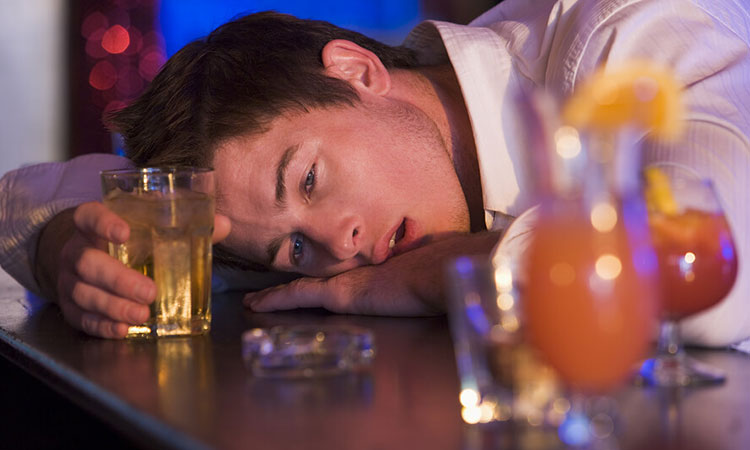
Is Alcohol a Drug? – According to the Merriam-Webster Dictionary, a drug is “something and often an illegal substance that causes addiction, habituation.” While alcohol is not illegal, it is undoubtedly habit-forming and certainly does cause dependency and addiction. So yes, alcohol is a drug, although it is generally thought of a little differently than others.
So why is alcohol so infrequently referred to as a drug? There are a few different reasons. One, drugs are often classified into one of two categories – prescription and illicit. As it stands, alcohol has not been regularly used for medicinal purposes in several decades, and since prohibition ended, remains legal in most areas and is widely available.
Another reason is that alcohol is a liquid, rather than pill/tablet, powder, or rock forms most often found among prescription medications and illicit drugs such as heroin and meth. Keep in mind, however, that these drugs can also be made into consumable liquids, as is rather common for prescription opioids (i.e., morphine, Dilaudid) and intravenous injections.
Is Alcohol a Drug? – Why is it Addictive?
According to David Nutt, a researcher at London’s Imperial College who performed studies in 2007 on different psychoactive substances, alcohol is the 7th most addictive “drug.” While less addictive than heroin, meth, or cocaine, it is still more addictive than other potent drugs such as benzodiazepines and amphetamines.
Like many mind-altering substances, alcohol is addictive because of its effects on the brain’s reward system. Consumption of alcohol results in a boost of neurochemicals, such as dopamine, which are responsible for feelings of well-being.

Like other drugs, excessive, long-term alcohol use also causes dependency and tolerance. Dependency is a condition that develops over time and results from the brain’s tendency to adjust to the continued presence of alcohol and gradually become less able to function properly without it.
Alcohol’s depressant properties mostly characterize its dependency and effects that result – moreover, when a person stops drinking abruptly after sustained use, withdrawal symptoms occur as hyperactivity or adverse “overreactions” to the missed presence of alcohol.
Withdrawal symptoms associated with alcoholism can begin within hours and last a few days. They include but are not limited to the following:
- Anxiety
- Depression
- Shakiness
- Weakness/fatigue
- Headache
- Nausea and vomiting
- Insomnia
- Sweating
- Flushing
Also, more severe problems can occur in extreme cases and may include a condition known as delirium tremens, which is characterized by seizures, delusions, confusion, and hallucinations. Delirium tremens can be life-threatening, especially if left untreated.
Tolerance also develops as a result of ongoing alcohol use and is the product of the brain’s propensity toward “repeated exposure = diminished response.” In other words, the development of tolerance forces the individual using a substance to consume it in increasing amounts to achieve the desired effects.
Is Alcohol a Drug? – Symptoms of Alcohol Addiction
Other signs of alcohol addiction are mental and behavioral effects and include, but are not limited to the following:
- Continued alcohol use despite adverse consequences, such as legal problems, family conflict, and financial difficulties.
- Preoccupation with alcohol and spending amount of time obtaining it, drinking it and recovering from its abuse.
- Attempts to limit drinking or cut back result in repeated failures to do so.
- Critical responsibilities, hobbies, and activities once enjoyed are neglected or take second place to alcohol use.
- Engagement in dangerous or impulsive behavior, such as drinking and driving and risky sexual encounters.
- Borrowing or stealing money or other items to obtain alcohol.
- Deception and manipulation of others – hiding alcohol use or making excuses for being intoxicated.
- Poor hygiene – not showering or maintaining a reasonable appearance in the presence of others.
- The occurrence of injuries due to drinking, such as bruises or broken bones from falls.
- Unsavory behavior resulting from alcohol use such as belligerence or the commission of assaults.
Treatment for Alcohol Addiction

Because alcohol addiction can result in severe complications following cessation of use, treatment usually begins with a medically-assisted detox – a process in which the patient is monitored around-the-clock for several days and treated with medications for withdrawal symptoms.
After detox, patients are urged to undergo inpatient (residential) treatment, otherwise known as rehab. During rehab, patients receive medical care and therapeutic services around-the-clock for at least 30 days. Services consist of behavioral therapy, counseling, and 12-step program participation, among others.
Following a full-term residential stay, patients can engage in intensive outpatient treatment, a program that requires the persons to visit the center several times per week for ongoing therapy and other services.
Outpatient treatment is an excellent transitionary tool that allows the patient to live outside the center as they re-acclimate to society. Many outpatients choose to live in an approved sober living environment to increase safety, foster continued abstinence and prevent relapse.
After formal treatment has been completed, former patients can take advantage of aftercare planning services, which help the person find medical and mental health resources outside of the center that will continue to promote long-term recovery.
Our programs are structured with various components of evidence-based treatment practices and holistic approaches to treatment that provide our patients with the knowledge and tools they need to be successful in their recovery.
If you or your loved one is suffering from substance abuse, please seek help as soon as possible.